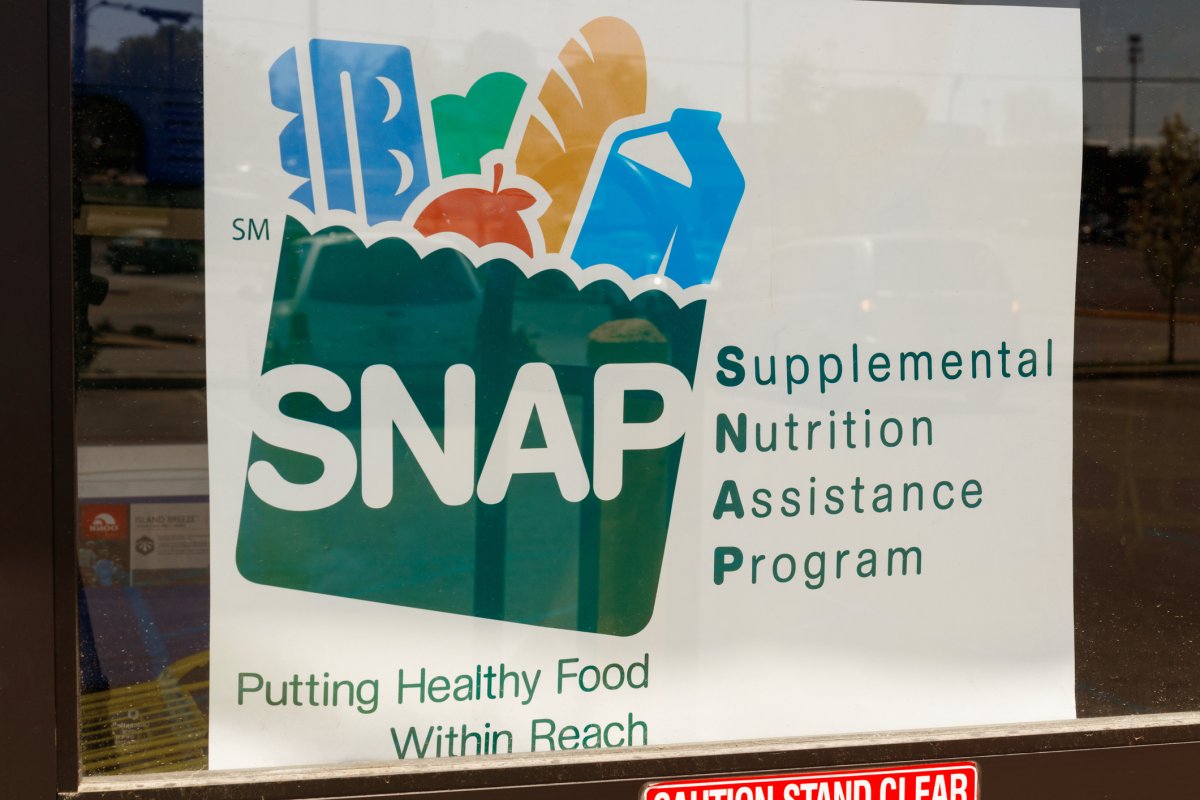Rhode Island could foot the bill for $85 million in SNAP benefits if the Republican budget bill passes, a senator has said.
Why It Matters
Under the Republican-led One Big Beautiful Bill Act, which is making its way through the legislative process, states could be made to pay for a portion of Supplemental Nutrition Assistance Program benefits. As it stands, states pay for half of the administrative costs of running the program, while the U.S. Department of Agriculture pays the other half. The USDA also covers the entire cost of benefits.
In Rhode Island—which ranks 15th in the country for SNAP usage, according to an analysis by Trace One—SNAP is delivered to about 144,000 residents, providing monthly benefits to low- and no-income families. The Center on Budget and Policy Priorities think tank reported in March that shifting some of the cost of SNAP benefits to states would negatively affect state budgets “at a time when many states are facing revenue downturns.”
What To Know
Senator Jack Reed, a Democrat, has said the Ocean State could be on the hook for $85 million of the roughly $343.5 million the state receives from the USDA to pay for SNAP benefits.
Other provisions outlined in the bill, such as expanding work requirements and limiting future benefit increases, could “reduce monthly nutrition assistance for children from low-income families, seniors, disabled Americans, and veterans below what is necessary to maintain a healthy diet,” a June 6 news release from Reed’s office said.
Reed said the entire state would be affected by the proposed SNAP cuts, not only through a potential loss of benefits for recipients but also lost productivity and increased expenditures in other public areas, such as health care. He said it would also affect the state’s businesses and economy.

A stock image of a SNAP sign in a retailer’s window.
GETTY
“Every dollar in federal SNAP investment generates over $1.50 in economic activity,” Reed said. “If you start taking hundreds of millions of dollars out of the local economy, it means stores close, farms go under, and food prices keep going up. Ultimately, the Republican plan would make it harder for Rhode Island families to afford their grocery bills.”
The Center on Budget and Policy Priorities said in its March report: “States are not in a position to absorb these substantial additional costs. In fiscal year 2024, tax revenue fell in 40 states after adjusting for inflation, and many states are projecting budget shortfalls in the short and long term.”
Other states have also warned that they could be forced to pay millions to keep SNAP benefits available if the bill passes in its current form. In late May, the Wisconsin Department of Health Services said the state would lose about $314 million in food assistance if the legislation came to pass. Michigan has also warned that it could be forced to foot a $900 million bill for food assistance.
What People Are Saying
Senator Jack Reed, a Democrat from Rhode Island, said in a news release issued on June 6: “When Republicans threaten to cut SNAP benefits, they’re really threatening public health, working families, and our economy. Access to food is essential for everyone. The Republican plan would mean less food for the poor, fewer jobs, and less economic activity in the community. It would increase hunger and hardship.”
Darcy Milburn, the director of Social Security and health care policy at the Arc of the United States, told Newsweek: “Any cuts to SNAP funding would make it even harder for people with disabilities and their families to access the food they need to live healthy lives. We urge Congress to reject proposals for any cuts to SNAP, and to work on a bipartisan basis to strengthen and protect this critical program.”
Lisa Roth Blackman, the chief philanthropy officer of the Rhode Island Community Food Bank, said in a news release: “The impact that this cut will have on families, children, seniors, and veterans will be catastrophic. Kids will be less ready to learn in school. Working adults won’t have the energy to work. Seniors will be forced to make terrible choices about whether to pay for prescriptions and healthcare or food. And veterans and people with disabilities will struggle to get the food they need to survive and thrive.”
President Donald Trump, who has not commented directly on the SNAP provisions, wrote on Truth Social following the passage of the bill in the House of Representatives: “It’s time for our friends in the United States Senate to get to work, and send this Bill to my desk AS SOON AS POSSIBLE!”
What Happens Next
The bill moves to the GOP-controlled Senate this week, where lawmakers may propose changes to the legislation.
